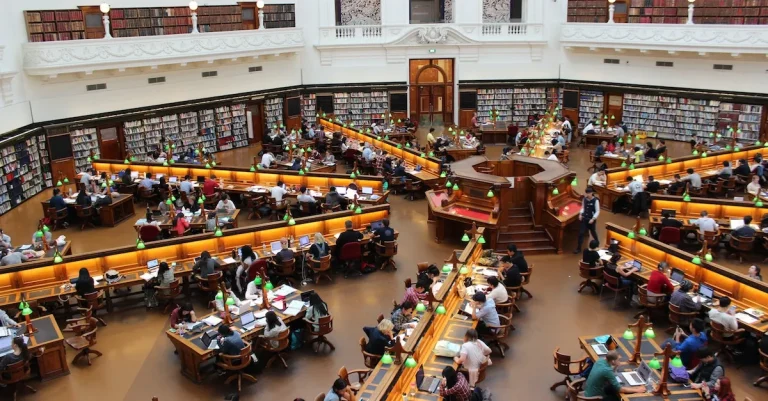Why Is Los Angeles Called Los Angeles? A Deep Dive Into The History Behind The City’S Name
The name Los Angeles often evokes images of glitz, glamour and the entertainment industry. But where did this iconic city get its name from? If you’re wondering why Los Angeles is called Los Angeles, you’re not alone. The story behind the origin of its name is actually quite fascinating.
If you’re short on time, here’s a quick answer: Los Angeles was named by Spanish settlers in 1781, inspired by the original name El Pueblo de Nuestra Señora la Reina de los Ángeles, which translates to ‘The Town of Our Lady Queen of the Angels.’ The long name was eventually shortened to Los Angeles over time.
In this comprehensive guide, we’ll explore the full history behind the naming of Los Angeles. We’ll look at the city’s Spanish roots, its founding by Spanish settlers, and how its lengthy original name was shortened into the Los Angeles we know today. We’ll also examine some of the other names the city had over time before Los Angeles was firmly established. Let’s take a deep dive into how one of America’s most famous cities got its iconic name!
Los Angeles Was Founded by Spanish Settlers
The history of Los Angeles begins with its founding by Spanish settlers. The city’s name itself reflects its Spanish origins. Let’s delve into the fascinating story behind the name of this iconic city.
The area was claimed by Spain in 1542
In 1542, the Spanish explorer Juan Rodriguez Cabrillo claimed the land that would later become Los Angeles for Spain. He named the area “Bahía de los Fumos” (Bay of Smokes) due to the presence of native villages with smoke rising from their dwellings.
However, it would be several more decades before the Spanish established a permanent settlement in the region.
Spain sent explorers to establish settlements in the 18th century
In the 18th century, Spain sent several expeditions to California with the aim of establishing settlements and expanding its influence in the region. These expeditions were led by explorers such as Gaspar de Portolà and Junípero Serra.
It was during one of these expeditions that the first Spanish settlement in the area was established. On September 4, 1781, a group of 44 settlers, known as the “Pobladores,” founded El Pueblo de Nuestra Señora la Reina de los Ángeles del Río de Porciúncula.
This name, which translates to “The Town of Our Lady the Queen of the Angels of the Porciúncula River,” was eventually shortened to Los Angeles.
The name “Los Angeles” is a combination of Spanish and indigenous influences. The Spanish word “los” means “the” in English, while “angeles” translates to “angels.” The indigenous influence can be seen in the inclusion of “Porciúncula,” which is derived from the name of the Porciúncula River that flows through the area.
Today, Los Angeles is a vibrant and diverse city that reflects its rich history and cultural heritage. Its name serves as a reminder of the city’s Spanish origins and the legacy of the settlers who founded it.
The City Was Originally Named ‘El Pueblo de Nuestra Señora la Reina de los Ángeles’
Los Angeles, the second-largest city in the United States, has a rich history that dates back centuries. Originally settled by indigenous tribes, the area eventually became part of Spain’s colonial empire.
When Spanish explorers arrived in the late 18th century, they established a settlement and named it “El Pueblo de Nuestra Señora la Reina de los Ángeles.”
Translates to ‘Town of Our Lady Queen of the Angels’
The original name of Los Angeles, “El Pueblo de Nuestra Señora la Reina de los Ángeles,” translates to “The Town of Our Lady Queen of the Angels” in English. This name was chosen to honor the Virgin Mary, who is often referred to as the Queen of the Angels.
The name reflects the deep religious influence that was prevalent in Spanish colonial society.
The Spanish settlers believed that the Virgin Mary played a significant role in their lives and sought her protection. By naming the city after her, they hoped to invoke her blessings and ensure the prosperity and growth of the settlement.
The name also served as a reminder of their Catholic faith and the importance of religion in their daily lives.
Honored Mary, mother of Jesus
The decision to honor Mary, the mother of Jesus, with the city’s name was not uncommon during the Spanish colonial period. Many cities and towns in Latin America were named after religious figures or events.
In this case, the settlers wanted to express their devotion and gratitude to Mary for her role in their lives and the establishment of the settlement.
The name “Los Angeles” has since become synonymous with the city and is recognized worldwide. It serves as a reminder of the city’s origins and the cultural heritage of its early settlers. Today, Los Angeles is a vibrant and diverse metropolis that continues to celebrate its history while embracing its multicultural identity.
For more information on the history of Los Angeles and its name, you can visit the official website of the city: https://www.lacity.org/
The Long Name Was Shortened Over Time
Los Angeles, the vibrant city on the West Coast of the United States, has a unique and fascinating history behind its name. Originally, the city was referred to as “La Ciudad de la Reina de Los Ángeles,” which translates to “The City of the Queen of the Angels.”
This lengthy name can be traced back to the Spanish colonization of California in the 18th century.
Referred to as La Ciudad de la Reina de Los Ángeles
When the Spanish explorers first discovered the area that is now Los Angeles, they were struck by its natural beauty and believed it to be a place of divine presence. In honor of this, they named the settlement “El Pueblo de Nuestra Señora la Reina de los Ángeles del Río de Porciúncula,” which means “The Town of Our Lady the Queen of the Angels of the Porciúncula River.”
This mouthful of a name was later shortened to “La Ciudad de la Reina de Los Ángeles.”
The inclusion of “Los Ángeles” in the name is a reference to the Catholic mission system that the Spanish established in California. The mission in the region was named after the Angels, or “Los Ángeles” in Spanish, and the city inherited this name as well.
During the early days of the city, the name “La Ciudad de la Reina de Los Ángeles” was commonly used, but as the city grew and evolved, the residents began to shorten it for convenience. After all, saying the full name every time became quite the mouthful!
Eventually simplified to just Los Angeles
Over time, the name was gradually simplified to just “Los Angeles.” This shortened version became more commonly used in everyday conversation and eventually became the official name of the city. Today, “Los Angeles” is recognized worldwide and has become synonymous with the entertainment industry, beautiful beaches, and a diverse cultural landscape.
As the city’s name evolved, so did its identity. Los Angeles transformed from a small Spanish settlement to a bustling metropolis that attracts millions of visitors each year. Despite its abbreviated name, Los Angeles continues to embody the spirit of its original title, “The City of the Queen of the Angels,” through its rich history and vibrant culture.
Other Early Names for the City
Before Los Angeles became known by its current name, it had a few other names that reflected its rich history. Let’s explore two of these early names:
El Pueblo Sobre El Río de Nuestra Señora la Reina de los Ángeles
One of the earliest names for Los Angeles was “El Pueblo Sobre El Río de Nuestra Señora la Reina de los Ángeles.” This lengthy name, which translates to “The Town on the River of Our Lady the Queen of the Angels,” was given to the settlement by the Spanish colonizers who founded it in 1781.
The name was a tribute to the Catholic mission that stood nearby, named after the Virgin Mary.
The Spanish influence in the region is still evident today, with many street names and landmarks preserving the city’s heritage. Visitors to Los Angeles can explore this history by visiting historic sites such as Olvera Street, which showcases the city’s Spanish and Mexican roots.
Ciudad de Los Ángeles
Another name that Los Angeles was known by was “Ciudad de Los Ángeles.” This name, meaning “City of the Angels,” was an abbreviated version of the original lengthy name. As the city grew and developed, the name was eventually shortened to simply “Los Ángeles,” which is what we know it as today.
The name “Los Ángeles” is a nod to the city’s Catholic heritage and the importance of the angels in Christian religious beliefs. It also reflects the city’s cultural diversity and the many different communities that call Los Angeles home.
Today, Los Angeles is a vibrant and diverse city that embraces its multicultural history. From its Spanish and Mexican roots to its status as a global entertainment capital, the city’s name represents its rich past and ongoing legacy.
When Los Angeles Was Firmly Established
In 1850, Los Angeles officially became the city’s name, solidifying its identity as a growing metropolis in Southern California. The name “Los Angeles” has its roots in Spanish, as it translates to “The Angels” in English.
This name was chosen in honor of the Catholic mission that was established in the area by Spanish colonizers.
Appeared on Early Maps and Documents
The name “Los Angeles” started to appear on early maps and documents as the city began to develop and expand. One of the earliest recorded instances of the name can be found in a map from 1771, created by Spanish explorer Juan Bautista de Anza.
This map referred to the area as “El Pueblo de Nuestra Señora de los Ángeles de Porciúncula,” which translates to “The Town of Our Lady of the Angels of Porciúncula.”
As the city grew, the name “Los Angeles” became more widely recognized and used. It became the official name of the city when California became a state in 1850. Since then, the name has become synonymous with the vibrant culture, entertainment industry, and diverse communities that make up the city of Los Angeles.
For more information on the history of Los Angeles, you can visit the Los Angeles Conservancy website, which provides a wealth of resources on the city’s rich heritage and architectural landmarks.
Conclusion
As we’ve explored, Los Angeles has a long and fascinating history behind its name. While today it’s known around the world simply as LA, the city traces its origins to Spanish settlers in the late 18th century, when it was given the lengthy name El Pueblo de Nuestra Señora la Reina de los Ángeles to honor Mary, mother of Jesus.
Over time, this name evolved into the much simpler Los Angeles, which was firmly established as the city’s official name by 1850. The name has stuck ever since, coming to represent one of America’s largest and most iconic metropolises. So next time you visit the City of Angels, you’ll know the centuries-long history behind its name.







